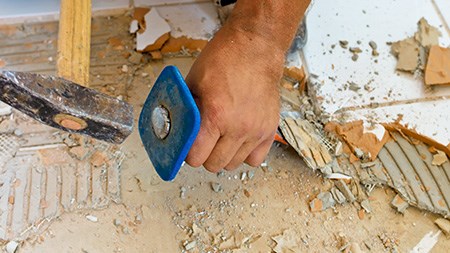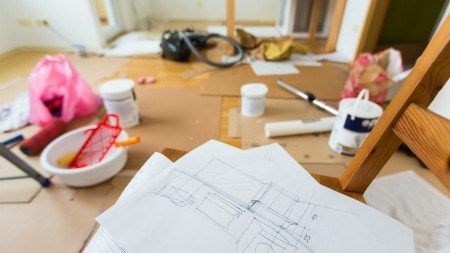Is it worth spending less on an older property in a good area, then renovating it?
In an increasingly competitive Joburg housing market and with increasing commuter costs, is it worth spending less on an older property in a good area and then renovating it, rather than buying a more up-market house elsewhere? According to Tony Clarke, MD, Rawson Property Group, the answer is yes – especially if you buy the house at a good price in a great location.
Renovating is a way of getting more house for a limited budget, or being able to afford to live in an up-and-coming area, while speculators see it as an opportunity to make a profit
Clarke says of the buy-to-restore trend. However, he warns that it’s important that buyers choose the right house to restore. “The broad rule here is to look for a house where any alterations that are necessary can be made within the existing exterior walls, as exterior additions are likely to push up the cost unjustifiably,” he says.
Jason Shaw, branch manager, Pam Golding Properties Fourways , Dainfern and Midrand, says that investing in renovations on a well-situated home is rarely a waste of money, and makes your living environment more comfortable. He also says it helps make the property more attractive to future buyers. “Most buyers appreciate modern kitchens and bathrooms, so these can be particularly important to renovate in the older property,” he says.
However, Tony Ketcher, principal, Seeff Randburg, advises against major expenditure if you’re thinking of selling, saying that sellers should instead use these funds to invest in the next property they buy. He does, however, recommend that sellers do basic fixes like painting, cleaning carpets and fixing broken gutters. “When a house looks shoddy, in the buyer’s mind the cost to repair is high and they will negotiate a price down to cover that perceived cost,” he says.
Above all, estate agents agree that it’s important to understand the price thresholds in a particular suburb when deciding how much money to spend on a renovation, as it’s easy to overcapitalize. “Buyers should get to know the local property market first and calculate just how much margin there would be between the purchase price of their home and a possible sale price, so that they do not run the risk of overcapitalizing the property,” says Clarke.
This article originally appeared in Neighbourhood, Sunday Times.




